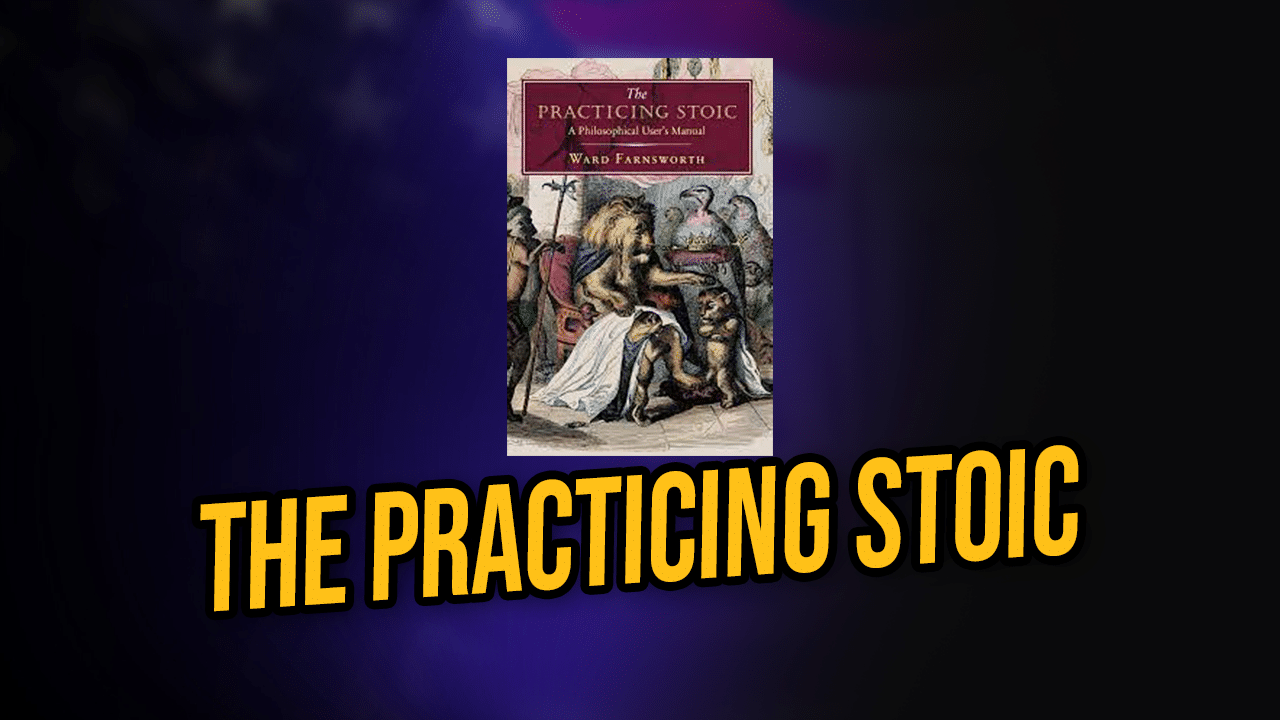
01 Sep The Practicing Stoic – by Ward Farnsworth
There are two ways you can approach philosophy: You can read it as it is enjoyable to read, to think, and to be inspired by new perspectives and ideas. Or, you can read, learn and practice. In that sense, no one may directly be aware you are “practicing” philosophy, but they may, indirectly, notice the changes in you. A recent book that was sent to me is called “The Practicing Stoic – A Philosophical User’s Manual”. When I received the book I felt the title was maybe a touch cheesy. However, I have come to realize prison is a sure fire place to get a lot of practice when it comes to the application of philosophical concepts. A philosophy book like this is indeed a user’s manual for how to navigate your way through the challenging aspects of human existence, similar to how a user’s manual in a car leads you to solutions when your vehicle has problems.
You can find alone time here – the study room on a Saturday night, rec call at 6:30 am, occassionally in your room (but not frequently when it houses 8 inmates). With so many people in such a confined environment, so many emotions, backgrounds, life experiences, and varying levels mental health challenges you will be tested more in one average day than in a few months in normal society. It wears on you, but it’s a reality you have to face every day.
Read a concept in a philosphy book and whether you are trying to live it or not, you will have opportunities to run these ideas through real life scenarios again and again, until they are hammered in to your soul and mind.
We have been receiving information that the number of covid cases in the Bureau of Prisons is increasing and the vast majority of facilites are going in to Red Level lockdowns. Not a fun way to approach Fall and Winter. Just one month ago I would have spiraled thinking about the implications of this. What will life look like under potential new restrictions, how will this affect my time here, and how will I get through it? In reality, a full on Covid lockdown would be an event, albeit one which has not yet occured. But say it did, then I would have an opinion about it. My reaction to the event isn’t guaranteed, it’s not set in stone, because it is based on my opinion about the lockdown, not the lockdown itself. Locking down a bunch of prisoners for months on end in a minimum security prison doesn’t warrant a reaction unto itself, as absurd as the idea sounds. You have to first judge the event and create your opinion of it, which is in your control.
I discussed this with another inmate today. He has served far more time than me and without my bringing the philosophical aspect of judgements & opinions into the conversation he came to the same conclusion these philosophers would have led someone. That the event may occur, and if it does, whatever happens will happen. After which, it will eventually end at some undetermined point in the future. It sounds bland, it sounds like this inmate is giving up or giving in. He is, but that is how he is winning. His opinion of the event is one of acceptance, so his reaction keeps him calm.
As an inmate, any restrictions or decisions surrounding lockdowns are 100% out of our control. All we can do is simply accept them and keep living life, that’s it. The whole scenario warrants zero stress. Easier said than done (it pains me to even write that) but really, if you keep coming back to the idea that we react to our opinions and judgements about events, not the events themselves, then we really have nothing to get upset about and we definitely gain nothing by pondering it now. We can prepare, so as to make the time as easy and productive as possible, but we should not stress.
I am admittedly having a difficult time living this idea, and I get enough practice it should be sinking in but I am also allowing myself grace. This is what these philosophers teach the reader and this type of thought process flows throughout the book – covering topics like death, desire, wealth, emotions and adversity. Reading this is equal parts therapy and education. It gives you a calm confidence that you can tackle not just prison, but life, using these tools which in essence tame our irrational thinking. The ideas that philosophers like Marcus Aurelius, Seneca and Epictetus share are easy and inspiring to digest, hard to disagree with, and a challenge to apply in daily life. I’m getting plenty of practice in here.

